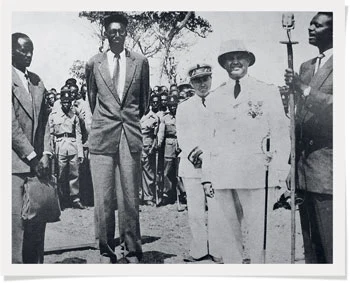
On Kigeri Nyamuheshera, One of Rwanda’s Great Warrior Kings
Thus the external evidence relating to Ruganzu suggests that Ruganzu may have lived sometime near, and maybe shortly after,1700. Of course, the search for such chronological precision may be, as…
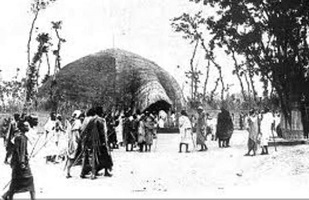
Comparative Explorations from West of Lake Kivu
First, the Abozi on Ijwi, who are said to be a part of the Balega clan, take their name from Mwoozi, an ancestor who is said to have helped Ruganzu…
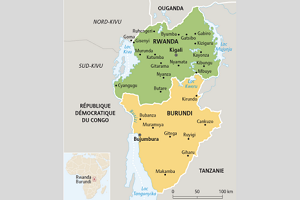
From Interest to Suspicion: The Havu Case
The royal genealogy of the senior Havu kingdom, along the western shores of Lake Kivu, repeats the general pattern noted above. But it does more, transforming “interest” to “suspicion” by…

Burundi and Rwanda: The Recurring Ntare
In Burundi, south of Rwanda, there occurred a similar process of reconstructing the royal line, a process that assumed the cyclic succession of a given set of dynastic names and…
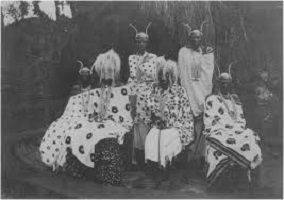
Recontextualizing Rwandan Dynastic Chronology
The ideology of kingship asserted that kingship was legitimated by its antiquity: the dynasty was at the heart of Rwandan culture, so the founding of the dynasty must (logically) correspond…

The Umuganura Ritual of Rwanda: An Analysis
The ritual begins in the moon of kaanama (corresponding to the month of August–September in the Gregorian calendar) with the transfer of hoes that are ritually pure; they must be…
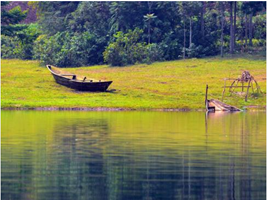
The Umuganura Ritual of Rwanda: An Overview
In Rwanda of the late nineteenth century, the centralized political structure and hierarchialized administrative structures meant that in most areas of the country the influence of the central court was…

The Rwandan Context of the Royal Rituals
Following a period of important military expansion and internal political consolidation, the kingdom of Rwanda included close to two million people within a highly centralized polity and hierarchized society at…
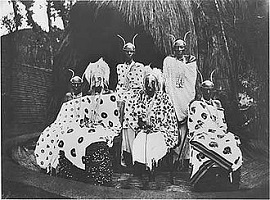
Ritual as Communication: Structuralists and the Analysis of Drama
Rituals are essentially formalized social drama. They are performed by people; therefore (where not esoteric) they invariably focus attention on the social aspects of the ritual, because in the performance…
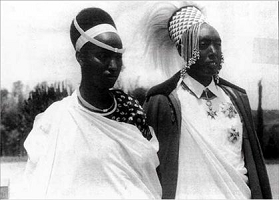
What Role Has KingShip: An Analysis of the Umuganura Ritual of Rwanda
An Analysis of the Umuganura Ritual of Rwanda as presented in M. d’Hertefelt and A. Coupez, La royauté sacrée de l’ancien Rwanda Divine kingship is one of the hoary tropes…
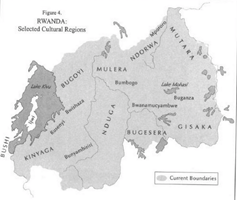
Bunyabungo: The Western Frontier in Rwanda, 1750–1850
Social hierarchy is manifested in many ways: politically, economically, and culturally. And asserting superiority occurs in many forms, including literary narratives, where assumptions of social superiority can be expressed in…

The Clans Of Rwanda: A Historical Hypothesis
Colonial historiography assumed that African societies were static, permanent, and primordial. The presence of “clans” in African societies was taken to prove to the case, for clans were seen as…

The Colonial Legacy in the Postcolonial Period
Following a second exile of seventeen years, Ntambuka, Ndogosa’s son and successor, returned to Ijwi just before independence in the territorial division of the island remained as it had been…
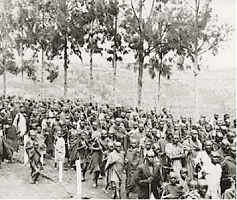
The Social Impact of the New Game
One of the blinders on colonial perceptions resulted from the perpetuation of the myth of indirect rule. Because he was local to Ijwi and a member of the royal family,…
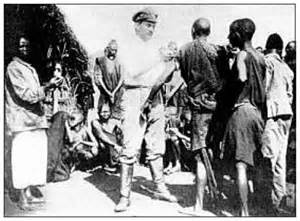
The Changing Political Game
New Goals, New Rules, New Strategies During his long retreat and flight, Ndogosa had acted to avoid relinquishing sovereignty. For him, the question of sovereignty had been more important than…
